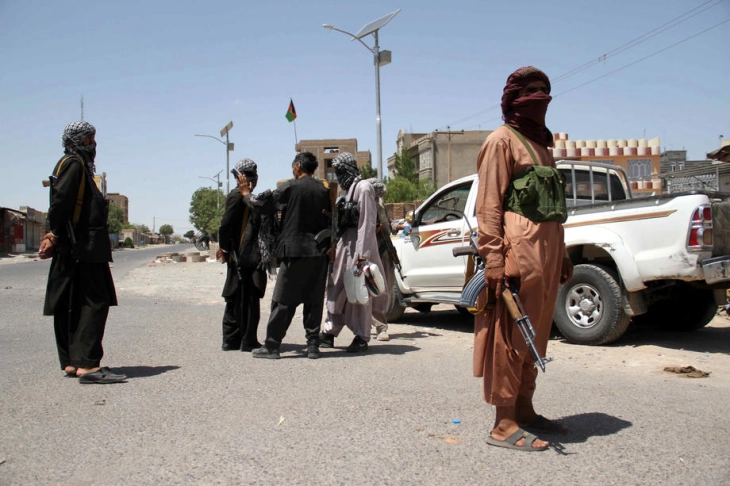Taliban forces enter Kabul as Afghan president flees country

Kabul, 15 August 2021 (dpa/MIA) - Taliban forces surrounding Kabul say they have entered the Afghan capital, shortly after Afghan President Ashraf Ghani was confirmed to have fled the country.
A Taliban spokesman said its fighters entered areas abandoned by security forces in order to prevent looting, after the Islamist militant group initially said it had ordered its forces not to invade the city.
The insurgent group's spokesman, Zabihullah Mujahid, said that residents would not be harmed, while Suhail Shaheen, a Taliban negotiator in talks with the Afghan government in Qatar, told the BBC that "there will be no revenge on anyone" in the Afghan capital.
While the head of the High Council for National Reconciliation, Abdullah Abdullah, confirmed on Facebook that "the 'former president' of Afghanistan left the country," he did not give details on where Ghani has fled to. Local media reported he left for Tajikistan.
Kabul was the last remaining major city in Afghanistan held by the country's government after Taliban militants captured the key eastern city of Jalalabad, capital of Nangarhar province, earlier on Sunday.
The militant Islamist group had captured almost all of the country's provincial capitals in the past week and a half, with many falling to Taliban forces without a fight.
After capturing Jalalabad in the east of the country, Taliban fighters gathered at the gates of the capital Kabul. However, they were initially ordered not to advance into the city.
Western governments including the United States, Germany, the Czech Republic and France are meanwhile rushing to evacuate staff from their embassies and calling on their citizens to leave as soon as possible.
The US embassy in Kabul warned its citizens who are in Afghanistan to seek safety amid reports that the airport had come under fire as the Taliban looks set to take over.
"The security situation in Kabul is changing quickly including at the airport. There are reports of the airport taking fire; therefore we are instructing US citizens to shelter in place," the embassy said.
The safe operation of the airport was previously considered a prerequisite - along with medical care - for embassies and international missions to remain in the country.
However, as the Taliban advanced, the US decided to move its personnel from the embassy compound to a location at the Kabul airport. US Secretary of State Antony Blinken told US broadcaster ABC that the aim was to ensure that staff could work without danger and that more people could be flown out.
So far, US President Joe Biden has authorized a total of 5,000 US troops to be deployed to provide security in Kabul and at the airport during the evacuation.
French President Emmanuel Macron said the safety of French and the local Afghan forces was an "absolute priority". In recent weeks, France has been one of the few countries still offering protection to vulnerable people on the ground.
Following the capture of Jalalabad, the Taliban was in control of at least 25 provincial capitals of Afghanistan's 34 provinces. All of these cities were captured within 10 days.
Fears of a military invasion had led to chaotic scenes in the capital, as many people tried to withdraw their savings, buy food and get home to their families.
Residents in Kabul later reported the city became a ghost town with shops and markets closed once Afghan government officials announced their intention to hand over power to the Taliban.
"Not one person is on the street," said Farsad Husseini, who lives in the centre of the city, saying virtually all citizens had barricaded themselves at home awaiting the arrival of Taliban forces.
Following reports of Taliban attacks on civilians, targeted killings, and other serious human rights abuses during the groups advances, world leaders and activists have been voicing their concerns for Afghan citizens.
British Foreign Secretary Dominic Raab has called on the Taliban to end its violence and protect human rights, while Pakistani activist and Nobel Peace Prize winner Malala Yousafzai said she was worried about the country's women, minorities and fellow activists.
Yousafzai, who herself survived a Taliban assassination attempt, said "global, regional and local powers must call for an immediate ceasefire, provide urgent humanitarian aid and protect refugees and civilians."
In anticipation of a wave of refugees following the Taliban's advances in Afghanistan, Iran has set up buffer zones at its border with the war-torn country to provide them protection.
Pakistan has meanwhile sealed its border crossing, leaving thousands of travellers stranded.







